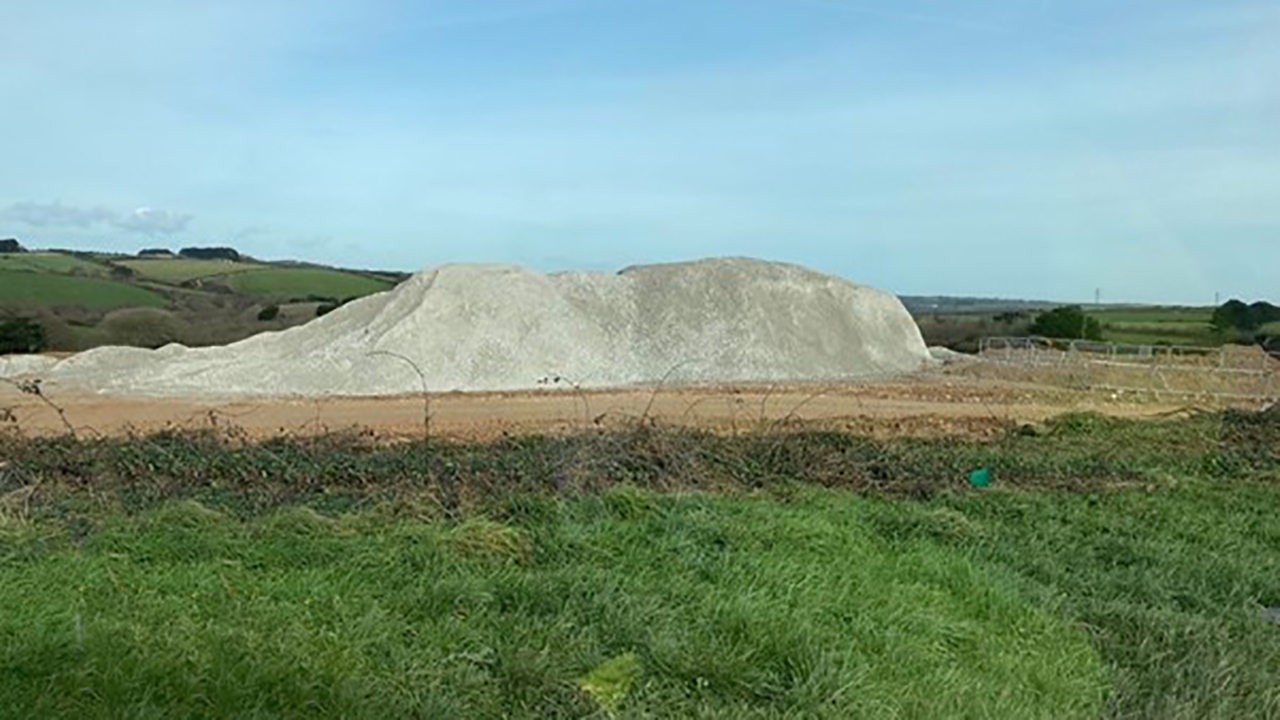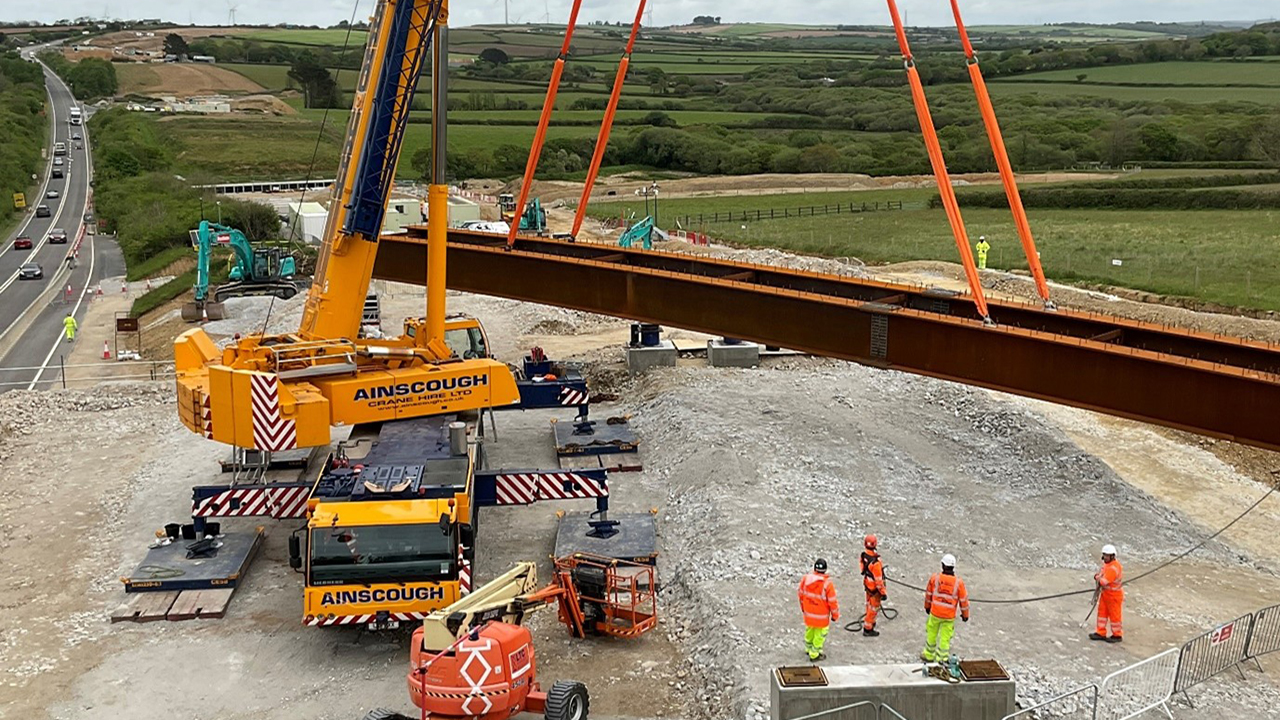Costain brings local green solutions to National Highways’ A30 road upgrade in Cornwall

NEWS ARTICLE
11 August 2022
Costain is delivering nine miles of dual carriageway to unlock congestion on the last remaining single carriageway section of the A30 between the Chiverton and Carland Cross roundabouts near Truro. Cornwall’s very own china clay mining industry is playing a big part in the construction of this major road upgrade.
Costain’s Climate Change Action Plan sets out an ambition to lead UK infrastructure into a zero carbon future by 2035 at the latest, so sustainability and reducing the carbon footprint are key drivers behind construction of the 8.7-mile dualling scheme. To that end Costain, design partner Jacobs, and construction solutions supplier Aggregate Industries are tapping into natural Cornish materials and a significant investment in local companies.
Larger infrastructure projects typically use millions of tonnes of aggregate – representing a large carbon footprint – but as with other modern-day road building schemes, the A30 project is utilising a by-product from the China clay mining industry.
The residue, known as stent, would normally have no use and be left in white spoil heaps, scarring the local landscape. Instead, the material from the Littlejohns Pit near St Austell is being processed into sustainable secondary sand and aggregate for construction use.
And just down the road, this is now being used as an engineering alternative across the A30 project, not only reducing the embodied carbon but also saving on the transport carbon cost.
Compared to the 5kg CO2e per tonne carbon emission of virgin aggregate, the locally imported material is around 2kg CO2e per tonne, representing a reduction of around 3kg CO2e per tonne of aggregate used.

Fully approved by National Highways, warm mix asphalt is a greener process that has less impact on the environment, with reduced hydrocarbon emissions and greenhouse gases. Due to its lower temperature, it is also safer for construction workers to use.
Warm mix asphalt is produced using temperatures up to 49 degrees Celsius lower than that used for traditional hot mix asphalt so less energy is needed in the heating process, meaning less fuel and a reduction in the plant's carbon footprint.
Costain and its supply chain are also tapping into local skills, companies and materials as construction on the £330 million scheme progresses.
Aside from the aggregate and asphalt production, this includes:
- employment of site managers and engineers from the local area
- use of Devoran Metals for reinforcement on the project
- use of a local scaffold supplier
- use of smaller suppliers of timber products
- engagement with local colleges and the Camborne School of Mines.
John Lee, Costain Project Director, said: “It’s been good to tap into local skills and materials, we’re making excellent progress with the construction works and on course for the new road to be open to traffic in winter 2023.
“We’re also committed to working with National Highways and its Net Zero Plan and the use of warm mix asphalts and china clay by-products is playing a big part in the A30 helping to reduce the carbon impact of construction.”
Work is moving on apace this year, with a number of overnight closures and other traffic management measures to enable the construction programme.

In the meantime, all traffic management and diversions are being communicated to local communities well in advance, and John Lee added: “We understand construction can impact on communities and road users, but we’re committed to minimising any disruption, and will continue to engage with and inform local residents and businesses.
“During construction, we’re committed to ensuring the safety of our team, local communities and the travelling public, and our performance and approach to health and safety has also been acknowledged recently with the Royal Society for the Prevention of Accidents awarding the scheme its Gold Award for 2022.”
Further information on environmental mitigation and other scheme details are available at https://highwaysengland.co.uk/projects/a30-carland-cross-to-chiverton/
The cost of developing the scheme is being partly funded by an £8 million contribution from the European Regional Development Fund, with an additional £12 million for the construction phase. The remainder of the cost of developing and delivering the scheme is being funded by central Government.
